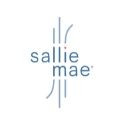Can you use Personal Loan to pay off student loan?
Learn about personal loans and how it can be used to pay off student loans. Also read about its pros & cons, alternative options to be considered and more.
Updated by Gowtham Ramesh on 22nd November 2019
If you are in the process of repayment of students loans then you must be in a hurry for settling the loan debt sooner and must be constantly in a search of ways to pay off the balance debt. One known factor is using personal loans to pay off their student loans to settle the loan debt.
Generally, Personal loans are generally unsecured loans which state that you are not supported by any sort of collateral such as cars, house, and bonds.
The charm of personal loans is that it differs from the mortgage, student loan, and car loan in ways that you can really use the money however you need. It can help you to redecorate the house or even pay off the credit card by consolidating. Furthermore, personal loans can offer you a much better rate of interest compared to the credit card.
You must be wondering if you can legitimately use a personal loan to pay off student loans. Hence, let's understand if using a personal loan would be a good move to pay off your student loans.
List of contents
- Personal loans to pay off a student loan
- Pros and Cons
- Alternatives to pay off student loans
- Best ways to pay off student loans
- Other Loans to pay off student debt
- Conclusion
Personal loans to pay off a student loan
A personal loan is a way to pay off student loan quicker and faster under newer conditions. Usually, the loan has durations with a decided amount during the loan timeline.
Personal loans generally do not have any fines or advance payments and it might affect your credit score as similar to the student loans does. They are not totally different from your student loans. If you take a personal loan and use it for your student loan, you are basically taking a newer loan to pay off an old student loan.
If you are in a hurry to pay off your student loan, you can consider the personal loans but it has its pros and cons.
Also Read: List of Personal Loans for college students
Pros and cons of using a personal loan
There are certain things needs to be considered before making use of the personal student loan. In total making use of student loan to refinance your student debt might cause you problems.
Pros
-
If you want to move with paying off your student loan with a personal loan then its benefits you as such.
-
Consolidation of your multiple student loans can be done to make a single one monthly payments.
-
You might able to get a lower fixed rate of interest
-
The fixed rate of interest and fixed repayment term can be a benefit to you.
-
The personal loan can be dischargeable in bankruptcy.
-
Paying off your student loan can help you release your cosigner faster.
-
The duration of personal loans is shorter where it can help you to pay off as fast as possible.
Cons
If you are using a personal loan to pay off then you cannot use benefits such as forbearance and deferment from a federal student loan or lesser payment facility from private lenders. Try to see if there are any benefits available for you to make use of before diving into it.
Interest is not tax-deductible
You won't be able to deduct your student loan interest if you have paid it off using a personal loan. The debt with the personal loan is listed as no tax benefit for the student debt.
Students loan holders can deduct around $2,500 under student loan interest where it can be adjusted in the total income if its less than $80,000.
Abandon of student loan protection from federal
-
If you use your personal loan to pay off student loan then you cannot redo it. You cannot get back to the federal student loan and you also abandon the perks such as Income-driven plans and the loan forgiveness.
-
The federal loan program provides you a wide range of repayment programs when it comes to flexibility which is not available in the personal loan. It even provides you a payment based on your income in the case of the federal plan.
-
If you are facing trouble in payment then the federal student loan has tons of options to keep it in the hold. But you cannot do it in the personal loan.
The interest rate is higher than the student loan
In the student loan, the rate of interest is lower than the personal loan. The refinancing of student loan starts at 1.95% where the lowest personal loan starts at 3.50%.
It's hard to get a personal loan to pay off student debt
Lenders generally don't allow you to pay off student loans with personal loans, only some might. So, before you go applying do make sure to check whether the lender allows you to use the personal loan to pay off the student loan debt.
You need to qualify for a personal loan and you need to have good credit, well-balanced income from a steady source you need to satisfy all the terms and conditions to be considered for one.
You generally have limits on the loan amount that you are getting as the personal loan don't have any support of collateral. Further, if your credit is new, the lender may neglect the loan as he doesn't see any history of credit in the higher amount of loan demanded.
Alternatives to pay off student loans
If you are not clear about using a personal loan to pay off student loan debt there are few other options such as
Federal repayment plan option
If you have federal student loans then you might have different kinds of repayment options available for you. Where if you go with a standard repayment plan, you get to pay off your student loan in 10 years.
If you are applying for an income-driven repayment plan then your income will not support the student loan payment as it needs to match with your income and you need to make sure that you can manage it. Moving to income-driven plans could help you save money by reducing the amounts.
Public Service Loan Forgiveness (PSLF) is another great option where you work under the public sector. If you make use of the personal loan to pay off the student loans, you will be giving away the protection and flexibility of federal benefits.
Look for refinancing
If you are looking to pay off the debt faster and save more on interest then consider refinancing your student loan into a newer student loan before heading into the personal loan.
A student loan can be refinanced by companies who help the borrowers to consolidate their student loans and save them money on the interest from the lower interest rate.
Furthermore, some refinancing companies like SoFi and CommonBond do have unemployment protection where it allows you to hold the payment while you are in search of jobs.
Personal loans cannot provide you this type of support and further, you might not get a lower interest rate here.
Worried about college fee? Learn about student loans
Other ways to pay off student debt
If you are currently looking for the best way to get your student loan debt, then you need to take your time to consider using the personal loan or a home equity loans too.
These options might not be fit for everyone if you are going to get it then you need to go through all the pros and cons. There even other several benefits to paying off of your student loans through other forms of credit.
Conversion to dischargeable debt
The most commonly faced issue when it comes to students loans is the debt is that it is not dischargeable in bankruptcy. This is a true fact whether you graduated or not.
Some borrowers might be relying on bankruptcy to get help and relief from their financial pressure or any other type of credit obligation but a bankruptcy relief from your student s loan is not available. Under certain exceptional circumstances, using other loans to pay off the student loans and removing the possible barrier makes that new loan eligible for a bankruptcy discharge.
However, you should never take any loan with the thought of including it to the bankruptcy in the near future because this will be termed as a fraud.
Credit Reporting
Another problem on a student loan is when your loans are in default and unpaid then you don't have a credit report on the closing date. The unpaid student loan is in default can haunt your credit score.
Fair Credit Reporting Act (FCRA) is a law that monitors and governs the credit reporting time, but it doesn't address federal student loan at all. These accounts are monitored on behalf of the higher education act where it says unpaid defaulted student loan debt is permitted to remains on your credit report forever.
While paying off your student loan debts with other types of loans, keep in mind that the new debt will get through credit reporting limitations.
No loss of government benefits
If your student loan goes into default then you might be in severe consequences. These loans are typically ineligible for bankruptcy discharge and you cannot remove student loan accounts resting from your credit report forever
If you default on the student loan, the government can exercise extreme steps in order to collect the debt. The wages which can be garnished and tax refunds can be delayed and kept for the outstanding debt. A part of your social security payments can also be held. This can cause you multiple financial hardships if you have no other source of income.
Also read: Student loan repayment options for you
Conclusion
Personal loans have various options to be considered before using it to decrease the student loan interest rate. It even has many lenders in the market where they offer you personal loans to pay off the students loan.
Refinancing might pay off your old loans for you and typically has a low rate compared to a personal loan. Based on your need to use refinancing or personal loan to pay off your pending student loans, try to consider all your options.
| Minumum Credit Score | Apply in as little as | Variable APR | Fixed APR | ||
|---|---|---|---|---|---|
 | Not Available | 15 minutes or less | 2.95 | 4.74 | View disclosures |
 | 620 | 2 minutes | 5.38%-16.99%1 | 4.43%-16.99%1 | View disclosures |
 | Not Available | 15 minutes | 1.13% - 11.23%¹ (with autopay) | 3.50% - 12.60%¹ (with autopay) | View disclosures |



93.jpg)


28.jpg)
